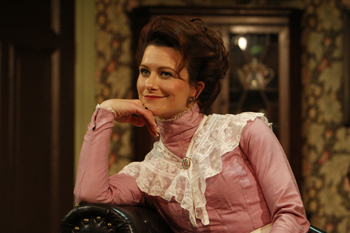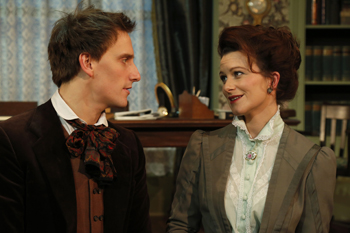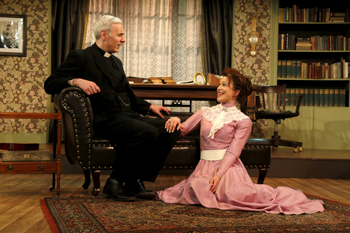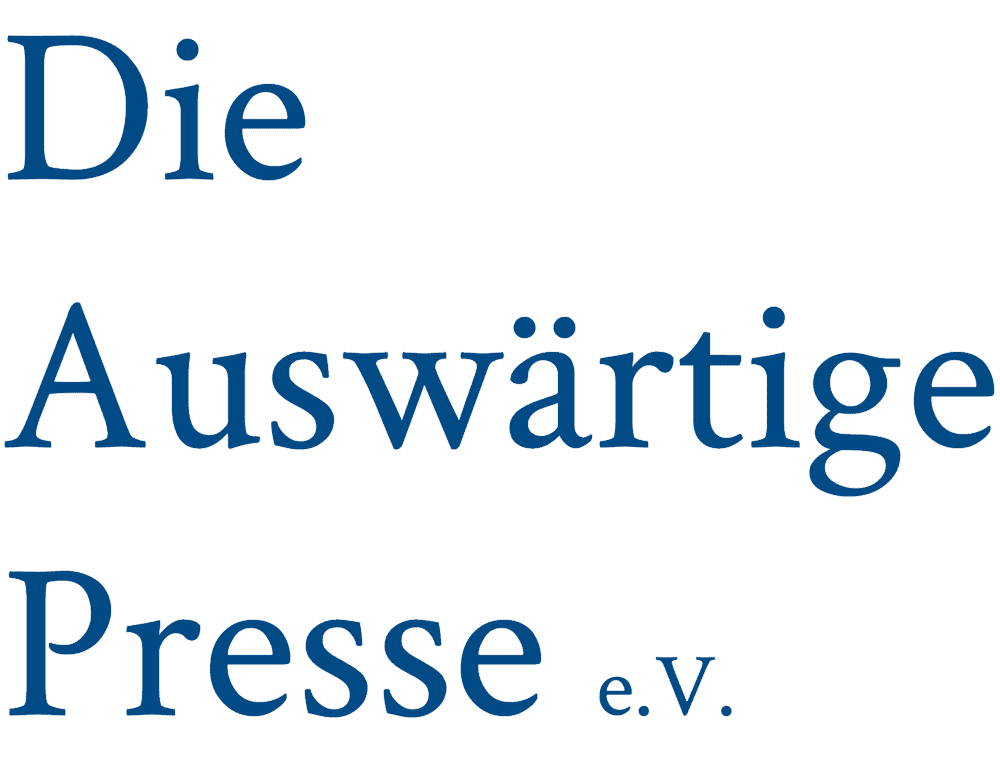By Uta Buhr

Rejoice habitués of the English Theatre of Hamburg! George Bernhard Shaw’s heart-warming comedy “Candida” that premiered at the TET on Thursday, February 19, is just the right thing for a dark and rainy evening in the dead of winter. Shaw, the enfant terrible of the British literary scene in the prudish Victorian era, wrote this play in 1894. “Candida” is one of Shaw’s plays categorised by him as “pleasant” in contrast to those named “unpleasant.” It is set in the north-east London St. Dominic’s Parsonage, depicting the marital relationship between Reverend James Morell who fancies socialist ideas, and his beautiful wife Candida. The play explores a love triangle consisting of Candida, the pure pastor’s spouse (nomen est omen), a young romantic poet and the clergyman himself. The tussle over the idealised woman who finally is given the chance to speak for herself as a self-possessed human being was quite new to the audience in the beginning of the 20th century. Although the comedy became instantly a great success on the stage of the renowned Royal Court Theatre in London in 1904, some spectators considered it a scandal. Love, the institution of marriage as well as the treatment of women in the society of those days
are the major ingredients of Shaw’s humorous play. Even nowadays the story rings true and the jokes are still as funny as ever.

“Candida” takes place on a single day in autumn 1895 in the big drawing-room of the vicarage. The setting is purely Victorian featuring a fireplace “crowned” by a ghastly oil-
painting, shabby but solid furniture and a huge doll-house which, no doubt, is an allusion to the drama “A Dolls House” by Henrik Ibsen, the Norwegian playwright whom Shaw regarded very highly. James Morell’s comfortable life with his beloved wife is shaken by the arrival of eighteen-year old Eugene Marchbanks, a promising poet who adores Candida. The young man explains quite clearly that the reverend does not deserve a woman like Candida who is not made for petty chores such as looking after a household and raising children. No, this divine woman deserves better than lead a dull life in the outskirts of London. While Morell is flabbergasted and even speechless for a moment – what for heaven’s sake does this cheeky young chap think of himself – Burgess, the reverend’s father-in-law, turns up out of the blue. He is one of those exploitative capitalists that Shaw so much despised but quite often included in his plots. Both men immediately start a discussion over social issues and thus tone down the heated atmosphere. The only person in the room who stays entirely cool all the time is Miss Prossy, Morell’s pert secretary. She continues to hammer the reverend’s sermons on her typewriter. She confesses to Marchbanks that all the women of the parsonage are deeply in love with her smart boss. Little wonder though that the man is so damned sure of himself.
In act three Morell and Marchbanks fight with each other for the love of Candida. They ask her to choose between them. She responds that she will decide in favour of the weaker of the two rivals. After a moment of uncertainty it becomes clear that she must choose her husband who is unable to live without her, whereas Marchbanks, the poet, is quite happy in his own company.

Six brilliant British actors and their director Philip Dart fired the audience. Thank you all
for this performance. We are looking forward to seeing you again on the stage of the English Theatre of Hamburg, preferably in a play – “pleasant” or “unpleasant” – written by George Bernhard Shaw.
A few words about the author
George Bernhard Shaw, born in Dublin in 1856, still counts among the most famous playwrights of the world, although he died in 1950 at the biblical age of 94.
After having immigrated to England at a young age, he first tried his hand at novels. However, his books did not prove successful. When he turned to writing plays he became famous very quickly. Between the years 1892 and 1940 he wrote no less that 50 plays, thus establishing himself as the foremost dramatist of his day. Besides “Candida” some of Shaw’s better known plays are “Mrs. Warren’s Profession”, “Major Barbara”, “Cesar and Cleopatra” as well as “Arms and the Man.” The musical “My Fair Lady” by Frederic Loewe and Alan J. Lerner was based on his play “Pygmalion”, which was later filmed with Audrey and Rex Harrison. In 1925 Shaw was awarded the Nobel Prize for Literature by the Swedish Academy. In 1939 he received the Oscar for the best adapted script.
Last performance of “Candida” on April 11, 2015 – Tickets under phone number
040 – 27 70 89 – online booking: www.english-theatre.de
Next premiere on April 23, 2015, of “Thrill Me”, a musical thriller by Stephen Dolginoff
